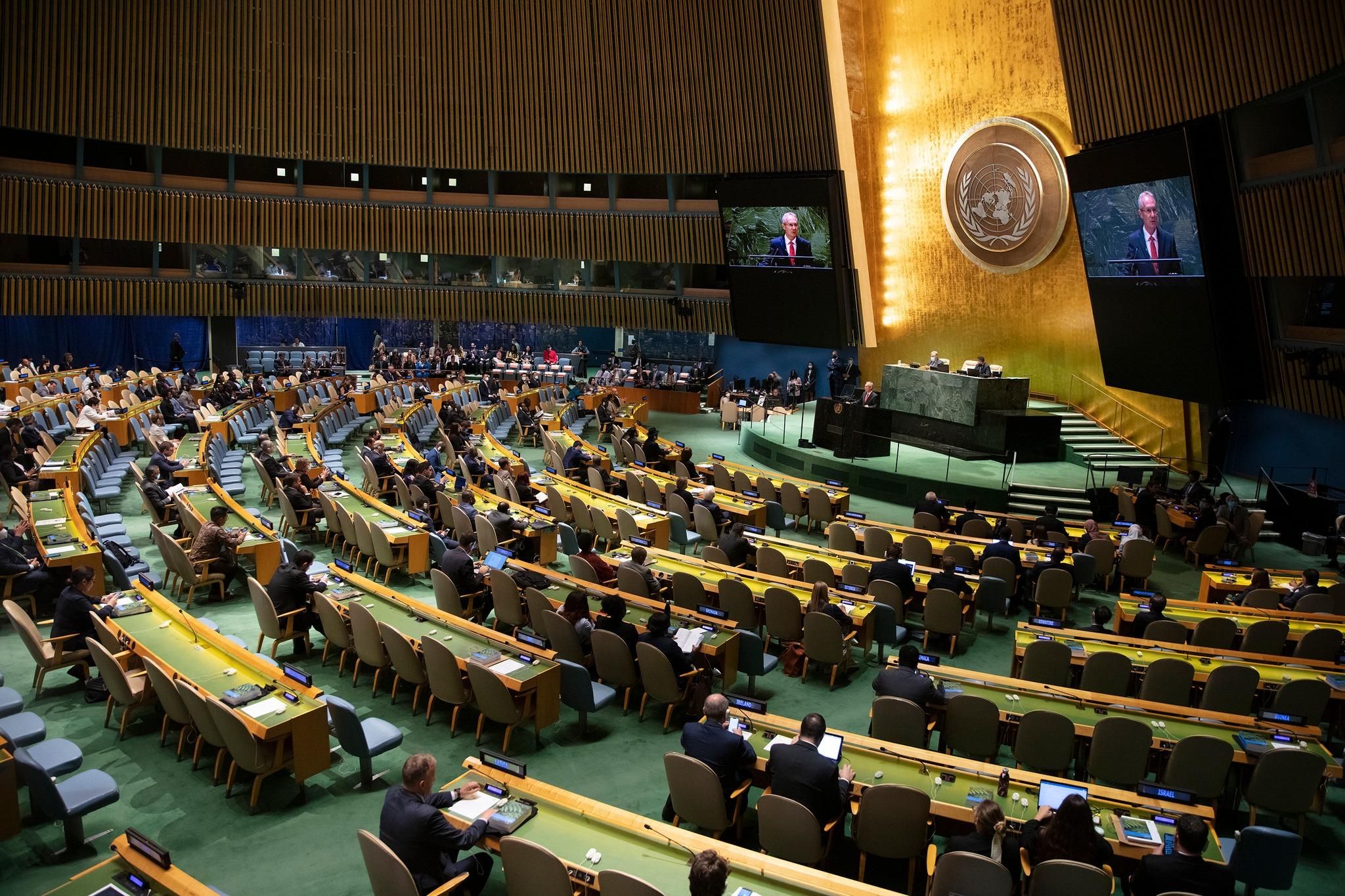Liao Pan/China News Service via Getty Images
World leaders are gathering this week in sunny New York City for the 77th session of the United Nations General Assembly, after more than two years of limited in-person attendance due to pandemic restrictions.
The mood is sure to be gloomy. From the war in Ukraine to growing food insecurity, the global energy crisis, and the devastating impacts of climate change, there is no shortage of problems to discuss.
Want to understand the world a little better? Subscribe to GZERO Daily by Ian Bremmer for free and get new posts delivered to your inbox every week.
“The General Assembly is meeting at a time of great peril,” my dear friend António Guterres, the secretary-general of the United Nations, said last week. “Our world is blighted by war, battered by climate chaos, scarred by hate, and shamed by poverty, hunger, and inequality.”
Tensions are running especially high this year, as geopolitical rifts between the United States and its allies on one side, and Russia, China, and most developing nations on the other, are hardening on the back of the Russia-Ukraine war and its knock-on effects. These growing divides “are paralyzing the global response to the dramatic challenges we face,” Guterres said.
The war in Ukraine is slated to dominate the discussions, but the meeting is unlikely to yield any progress toward ending the conflict. After their successful counteroffensive in the Kharkiv region, the Ukrainians believe they can achieve a decisive win on the battlefield and are unlikely to negotiate until they have captured significantly more territory. The Russians, meanwhile, will be hard-pressed to accept negotiations from such a position of weakness. Even Guterres, who like me can be a hopeless optimist, acknowledges that “the chances of a peace deal are minimal.”
President Volodymyr Zelensky will address the General Assembly via a pre-recorded video—an exception granted exclusively to him—while Ukraine’s Foreign Minister Dmytro Kuleba is attending in person. Russian President Vladimir Putin, the proverbial elephant in the room, is staying home, instead sending a delegation headed by Foreign Minister Sergey Lavrov—a wise decision in light of the lukewarmreception Putin got at the presumptively much friendlier Shanghai Cooperation Organization summit in Uzbekistan last week.
Top of the agenda at UNGA is also the global food crisisfueled by the Covid-19 pandemic and climate change and aggravated by Russia’s invasion. In an interview for GZERO World, Guterres told me that unless the deal to get Ukrainian grain shipments out brokered by himself and Turkey is extended to include Russian fertilizer—a key input for global food production—the world could well run out of food next year. At the moment there are no signs that progress on this front could be at hand.
That progress has been interrupted by a perfect storm of crises, and there’s an absence of leadership on the global stage to respond because most countries are understandably focused first and foremost on the demands of their (increasingly angry) populations at home.
Nothing that happens this week in New York is likely to change that.
🔔 And if you haven't already, don't forget to subscribe to my free newsletter, GZERO Daily by Ian Bremmer, to get new posts delivered to your inbox.
